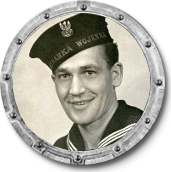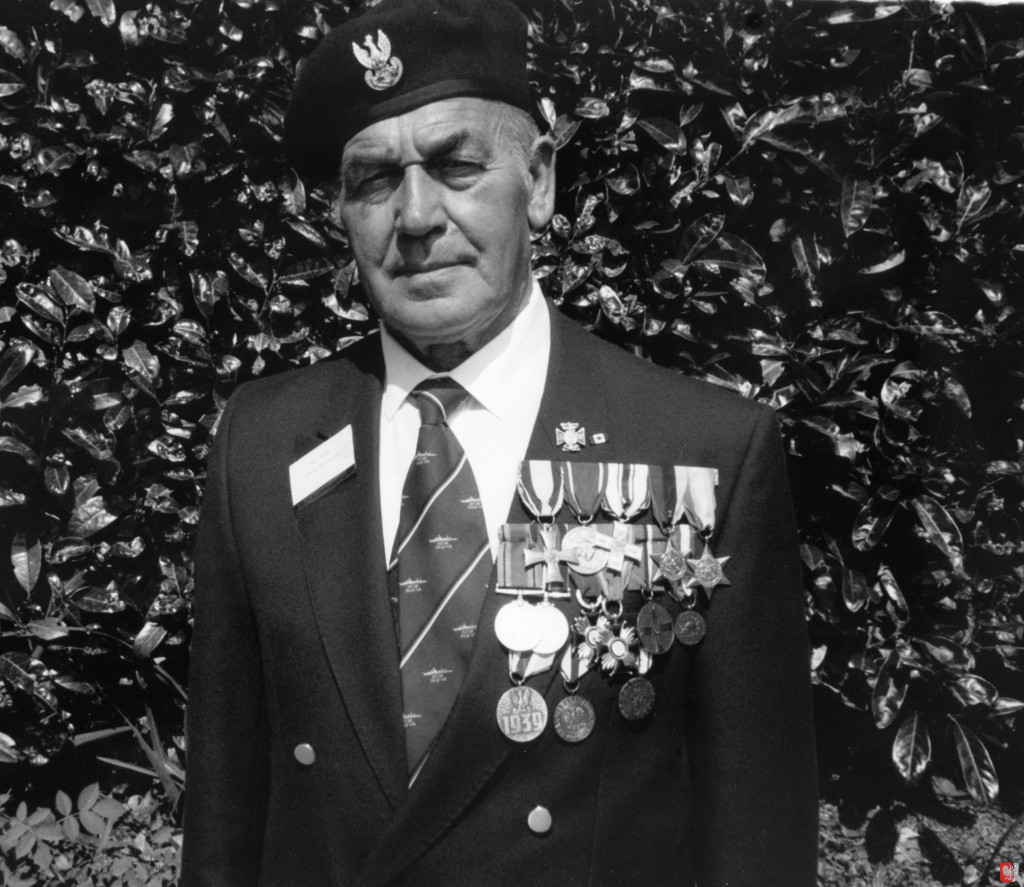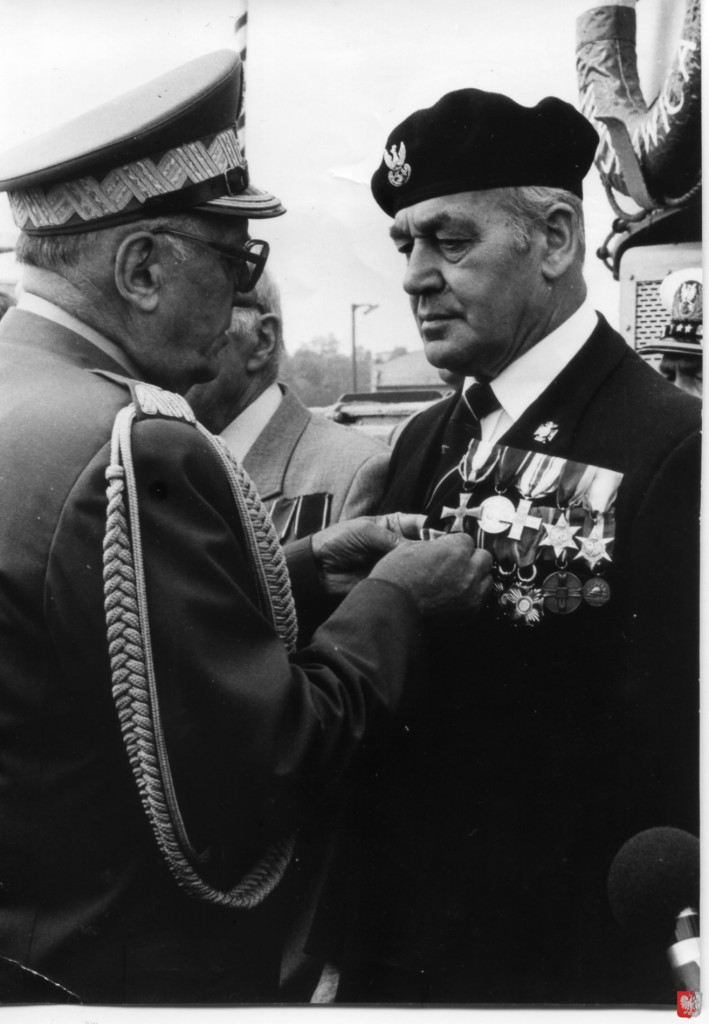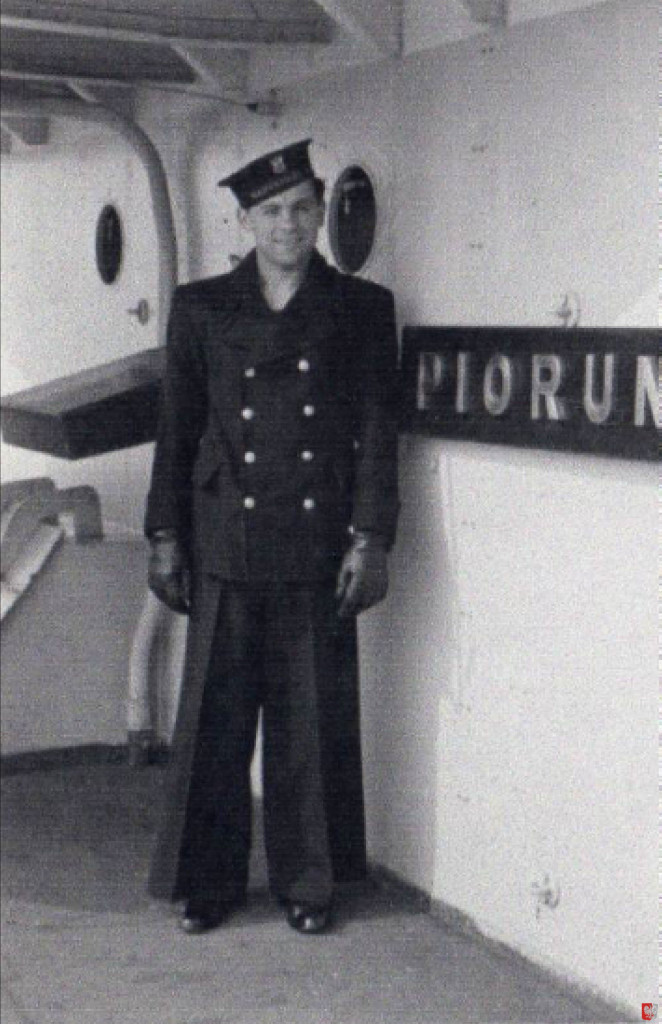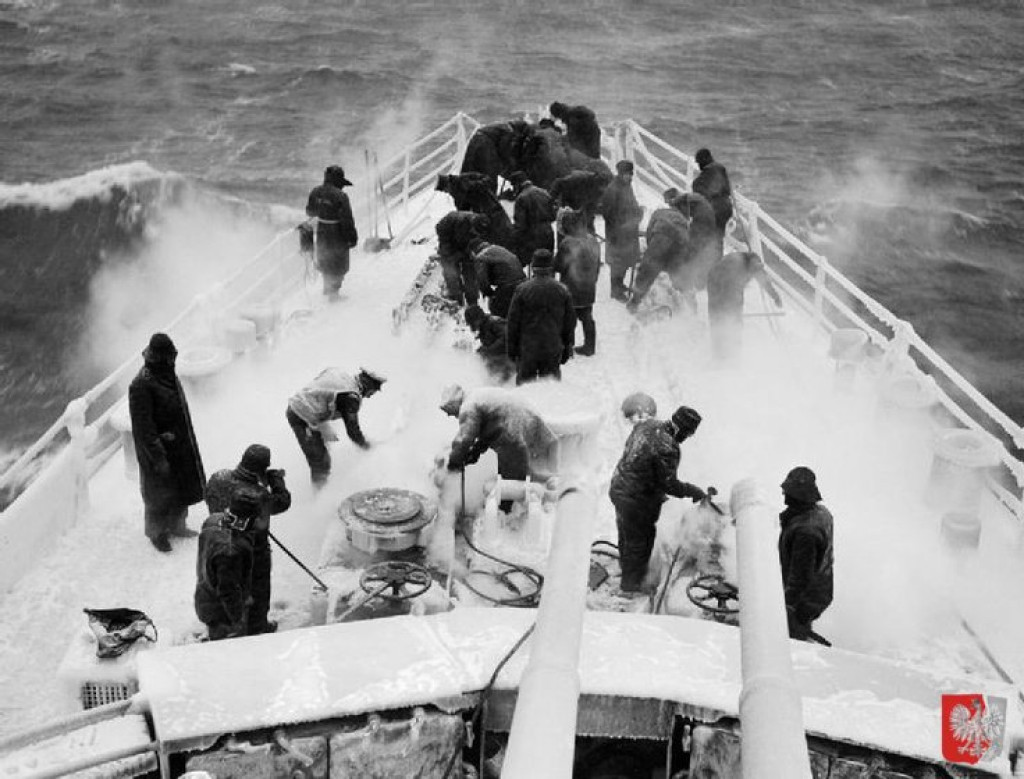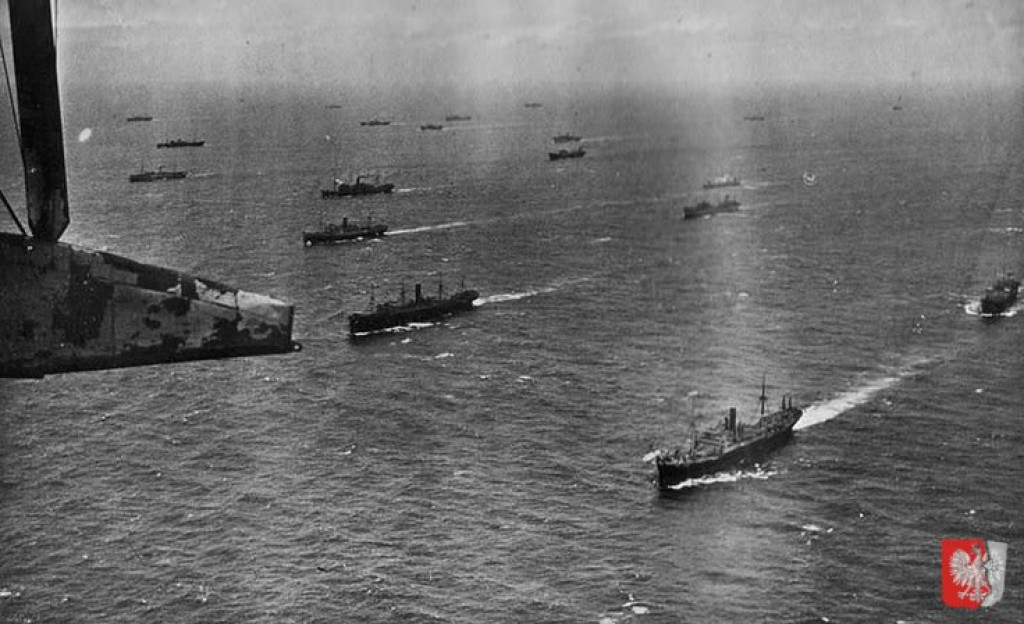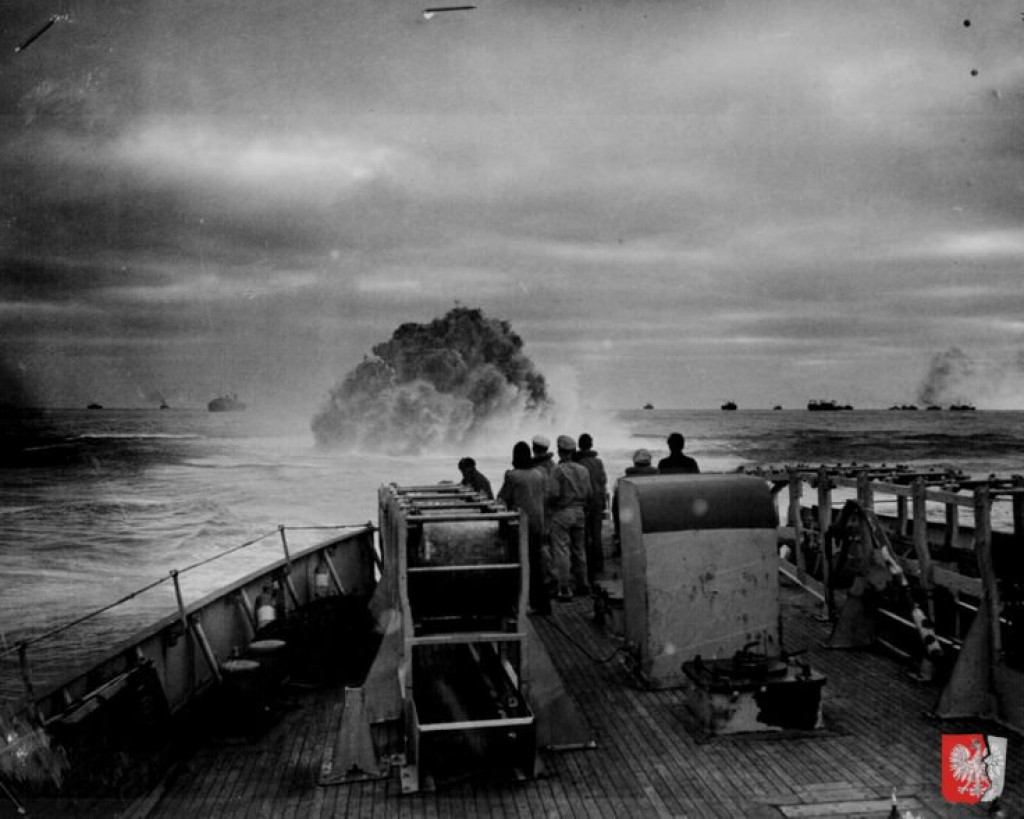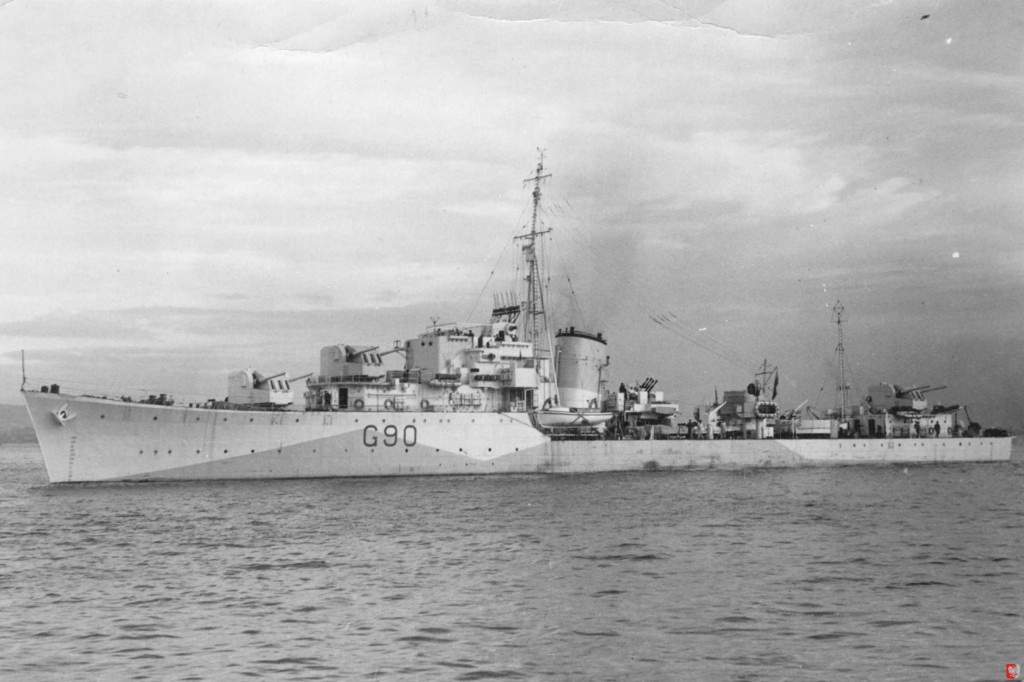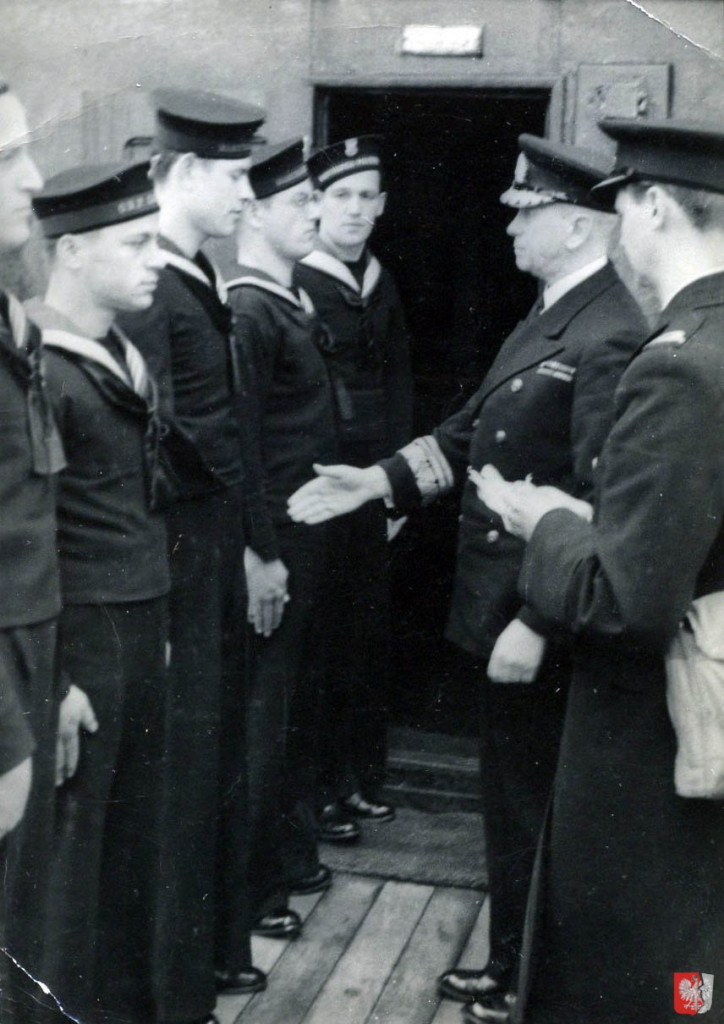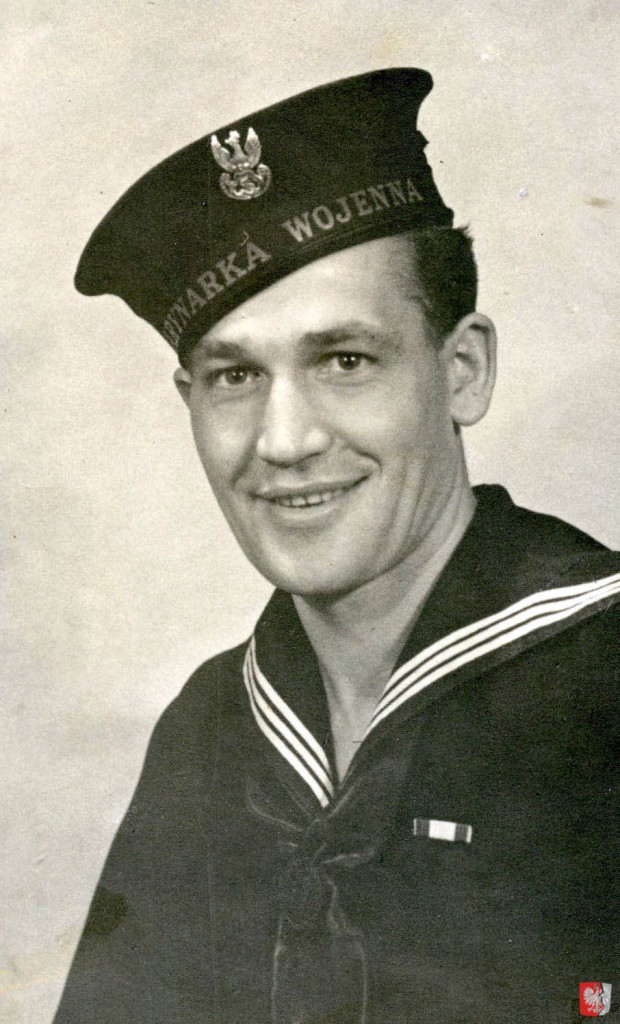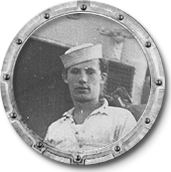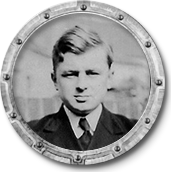Able-bodied Seaman Tadeusz SrokaOn the 8th October 1943, during the Battle of the Atlantic ORP Orkan was conducting anti U-Boat patrols when it was struck by a torpedo from a German submarine. Tadeusz Sroka was one of only 44 sailors to survive the attack after the ship exploded and sank.Tadeusz Sroka joined the Polish Navy in Gdynia in February 1939 and escaped to G.B. on the eve of war with ORP Grom. He survived her sinking on the 4th May 1940 during the Norwegian campaign at Narvik. In 1943 Tadeusz was posted to a new Polish destroyer, ORP Orkan, for escort duties. By then, he had risen to the rank of Able-Bodied Seaman and was serving as the ship’s paymaster. One unhappy task for the crew of ORP Orkan was to bring the body of General Sikorski back from Gibraltar to Plymouth in July 1943 following his death in a plane crash.In October 1943 in the Battle of the Atlantic, whilst escorting convoy SC.143, the Polish ORP Orkan, HMS Musketeer, Oribi and Orwell, under Commander Neville Currey in Musketeer, were attacked by the Rossbach group of 18 German U-boats. U-378 hit Orkan with a homing acoustic torpedo. Orkan was lost on 8th October 1943 South West of Iceland and killing 179 men and with only 44 survivors. Many sailors who survived the explosion of ORP Orkan drowned or died of hypothermia in the freezing water of the Atlantic before they could be rescued. To raise the spirits of his surviving men, Lieutenant Pohorecki decided to encourage everybody in the water to sing. The cold waves soon began to resound with the words from an old Polish church song “Chwalcie łąki umajone” (Praise the Spring Meadows). In extremely difficult conditions, in icy water two RN Lieutenants, E.P. Griffiths and T.S. Symons and five men, K. Carman, T. Drysoale, A. Harrison, K. May and J. McLean, from Musketeer, jumped in to help the exhausted Polish men to climb on board their ship. One of those lifted to safety was Gunner Bronisław Jaśnikowski, who said that because of freezing weather he could not grip the rescue line, but one of the English sailors tied a line round his waist which eventually put him aboard Musketeer. Currey was awarded the Polish Cross of Merit with Swords for rescuing the surviving Orkan crew from the icy water. It was evident that following the loss of Grom the Poles could confidently rely on the immediate help of RN ships and their crews at all times. Tadeusz Sroka, who served on Grom and Orkan, said that complete naval co-operation and friendship was always at its best in times of difficulty.The Polish Navy historian Michael Peszke wrote that during 1942-43 the battle of the Atlantic reached its climax, “The wolf packs, strung like a net over hundreds of miles of the Atlantic, could engulf the incoming convoys like a Tartar horde.”
On any given day there were several hundred merchant ships at sea, carrying cargo that was essential to sustain the civilian population and vital for the continued war effort. As the Polish naval historian, Wronski, wrote “they were the real heroes of the Battle of the Atlantic”.
In 1942 a total of 1,664 Allied merchant ships of a combined tonnage of 7 million 700 tons were sunk and the Germans lost 87 U-boats. The pace accelerated and in early 1943, 120 Allied ships of 693,389 tons were sunk for 15 U-boats. There are no reliable figures but the best estimate is that just over 30,000 men were lost on British registered ships alone.
ORP Orkan is sunk:
“At approximately 0603 hours of October 8, 1943, Orkan sustained a torpedo hit, which resulted in two major explosions and the near instantaneous sinking of the warship. Only one officer and a small number of seamen survived what was in Kondracki’s words, a scene straight out of Dante’s inferno. The Polish destroyer became engulfed in flames and sank within minutes of the two explosions. The few survivors were haunted by the screams of the men burning alive inside the sinking ship. At 0610 Orkan sank to the terrible dirge of the burning sailors. The survivors, floating in freezing oil-covered water, heard the final underwater detonation as the depth-charges exploded, putting an end to the terrible anguish and agony of the trapped sailors of the doomed ship.
Nine officers and 166 sailors were lost. Many died in the freezing waters awaiting daylight for rescue. The Allied ships were still fighting a life and death battle with the U-boats, and it was not until 0730 that Commander Cubrey of the Muskateer was able to pick up the few Polish survivors. A number of British sailors jumped overboard to help the exhausted Poles climb the lines to safety.
The grievous loss of a smart and modern ship like the Orkan and – even more important – of a brave and well-trained crew was hard to replace in the unique circumstances under which the Poles operated in exile.”
Source: Poland’s Navy 1918-1945 by Michael Alfred Peszke

